
OR
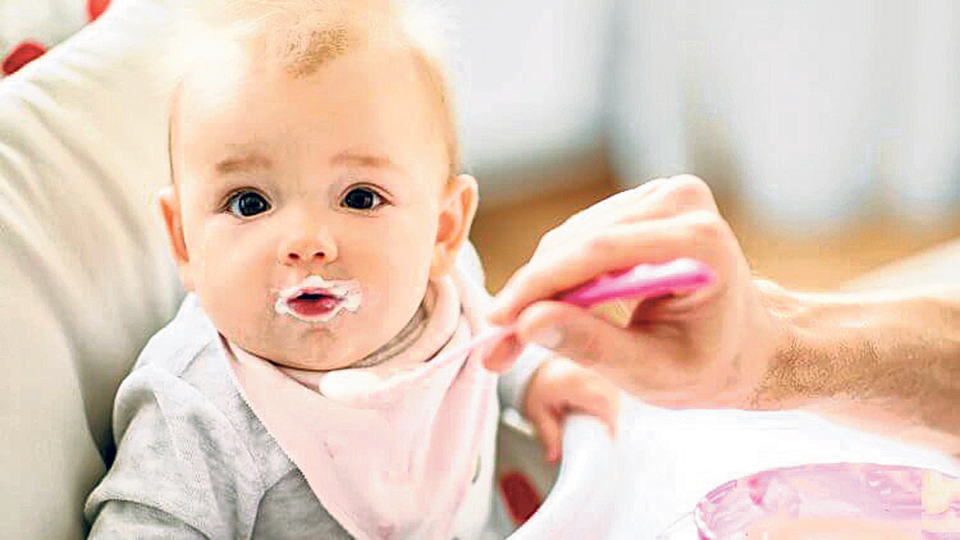

Usha Pokharel
Usha Pokharel is an educationist and author of several children’s books.usha@pokharel.net
Once babies start walking, they will want to walk all over the house, holding their parents’ finger, as reassurance and upon removing the finger, they will sit down and cry in frustration
Now that you have finally survived long days of pregnancy, and painful childbirth, you are officially parents. You find out, your baby has already received the first dose of vaccine. Babies typically receive the first dose of the Hepatitis b vaccine at birth. Congratulation, you are now ready to experience your baby’s eventful first year. Be prepared to face the challenge of sleepless nights, diaper changing, and regulating feeding times. During this initial stage of development, plenty is going within your small family. Nobody will tell you that when they mean sleeping like a baby, it means getting up multiple times at night. Either for feeding purposes or for changing the diaper. You need to understand that for the first few months, your baby’s daily routine will be all about eating, sleeping and pooping.
Also, no one will tell you that as soon as you have changed your baby’s diaper and thought, s/he is dry and comfy, your baby will wet it again. Just when you thought you are losing your mind, your baby is already two months old and has started smiling and making noises. At the same time, you also remember it’s time for the next dose of vaccines for your baby. These vaccines are critical for a baby’s health and hence should not be neglected at any cost. Don’t worry, although these shots make your baby a little cranky, s/he will quickly recover and continue cooing and smiling again in no time.
Parents don’t feel tired just yet, because, all that irresistible smiling and cooing is capable of melting a person like butter. Just keep in mind that this is an experience beyond explanation, and not everyone is fortunate enough to experience it. While you were busy handling other chores at home, you almost missed the fact that your child is now capable of following you, with his/her eyes, recognizes your face and voice, and is happy to see you. According to doctors, this is the time to move your baby to a crib, so they sleep independently.
While you were busy changing diapers and scheduling feeding time and monitoring your child, s/he is already four months old. Time sure passes by very fast when you are busy. At this age, babies find their thumb. I know you are thinking, what’s the big deal, why is it so special? Well, finding their thumb is a special moment for babies, because the action of sucking their thumb soothes and comforts them when they are frustrated. Along with this, there is another significant neurological development: the loss of the wild and jerky arm and leg movements that were there during the first few months. Now that your baby is four months old, s/he will start laughing and squealing and is very infectious. This is also the time for their next dose of vaccines. Make sure you keep up with your baby’s immunization schedule to keep him/her healthy.
You have been so busy enjoying parenthood you almost lost track of time. With a start, you realize your baby is already five months old. By this age, a baby’s brain reaches a maturity that lets them sleep through the night. I know you are thinking about feeding your baby at night. Don’t worry, your last feeding is enough for your baby to sleep restfully through the night. That is a boon for you, because you too will be able to sleep through the night, unless your baby is sick or upset. So, time again, to readjust your schedule. This is also the time to establish a daytime nap schedule, along with your feeding schedule.
Usually, babies wake up at six in the morning and demand feeding. In about two hours, s/he is ready for a nap. It is always a good idea to prepare her/him for a nap about fifteen minutes early. Ideally, babies will sleep for two hours and then want to have milk and some solid food when they wake up. Then play for a while and before another nap of two hours. Just make sure your baby sleeps after every two hours of waking up. That will help your baby’s brain to grow along with his/her body. In between this waking and napping, make sure the last nap is not more than forty-five minutes. Then at 6:00 pm, it is time for dinner, a rub down/ bath, and finally, down for the night by 7:00 pm. In between this eating, sleeping and napping, time goes by fast. In no time, your baby is six months old. By now, you know the routine pretty well, for your baby’s general checkup and vaccines.
Sitting up
At six months, babies will want to sit up and look horizontally, instead of looking at the ceiling, opening up a new world of interesting people and objects. Now is the time when babies find out hand-eye-mouth coordination. This enables babies to learn about objects by both tactile and oral sensations. As you know, at this age, everything goes in the mouth. By the time babies are 6-8 months, they will learn to sit independently. Pretty soon, that will lead to crawling. As soon as babies start sitting independently, be assured they are not too far from crawling. It is only a matter of four to six weeks until your baby makes the first move and starts crawling. Their urge to get from one point to another is very strong, and this motivates them to crawl.
The other thing is, not all babies crawl on hands and knees. Some might start combat crawling, on their belly, like a soldier going under a barbed wire, which is a very common variation of a crawl. Don’t worry if your baby does not crawl, or is late crawling. Not all babies have the same schedule for crawling. Some might crawl late, while others will just get up to walk. When babies start crawling, it is a reminder for parents to baby proof /safety proof their house, to avoid accidents. When babies become mobile, everything they reach and find, goes inside their mouth. Parents need to be conscious and not underestimate their babies, because they are exceptionally skilled at finding objects everywhere, even under the sofa. While we are busy running after the baby, something else is happening. Their experimentation with language.
Love for learning
In between sitting and crawling, this is also the time for babies to experiment with language acquisition, a critical element in a child’s developmental cycle. You will notice the random squeals and noises, slowly evolving into repetitive sounds. Of course, most of them are meaningless, but, over time, babies realize the noises that get an adult response. At this age, babies start imitating adults with gestures like ‘bye-bye’, ‘hi’, and other such sounds. They learn to associate sounds with actions.
By nine months, most babies are mastering fine motor skills. In the process, they will pick up the smallest of objects and put it in their mouths. This is the time to complete your house and environment safety, if you have already started it. If not, now is the time to do it. Your baby’s ability to pick up small objects indicates the baby’s neurologic developmental readiness to learn to chew. Usually, at this age, babies will reject the spoon. They want to feel the food and then put it in their mouth. This is also the time, babies find out about gravity, and are truly amazed to find things dropping from their hands to the ground. I know by now you are anxious for your baby to stand, walk.
Have patience. Generally, children learn to walk independently between 9-16 months. However, it is the result of many weeks of relentless efforts at mastering the art of standing, resulting in pulling the sides of your sofa to stand and then gradually cruise. Yes, they start with going sideways in a crablike fashion along the length of the couch, finally, being able to move from one furniture to another. This eventually leads to taking the first step. While celebrating your baby’s first year, don’t forget to get an annual checkup of your child and their vaccines. The vaccination schedule includes another checkup and vaccines at 15 months.
The ultimate process of walking is often more psychological than physical. Usually, once babies start walking, they will want to walk all over the house, holding their parents’ finger, as reassurance and upon removing the finger, they will sit down and cry in frustration. As soon as you extend the finger again, their crying will stop instantly. By the time babies are one year old, they will have established basic receptive and expressive language skills. Responding to call, saying simple words like ‘baba’, ‘mama’ and pointing to things s/he wants, are some of the basic things that indicate your baby is growing up.
Parenting is not such a difficult job after all, right parents?
Pokharel is an educationist and author of several children’s books
Email: usha@pokharel.net
You May Like This
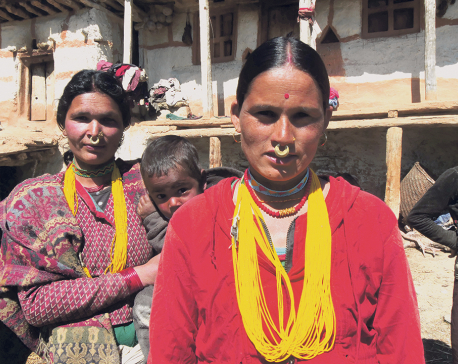
12 daughters, and still waiting for a son
BIRENDRANAGAR, Sept 19: Sharmila Jaisi, a local of Tajkot Katel Gaun, got married at the age of 16. Sharmila, who... Read More...
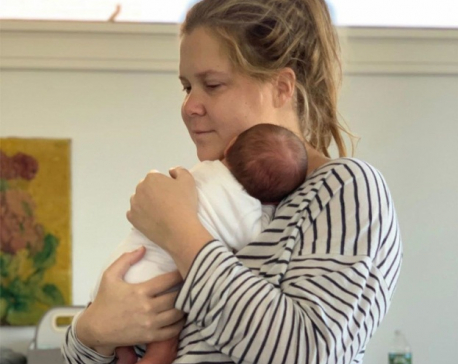
Amy Schumer calls parenting "nuts"
Actor-comedian Amy Schumer loves being a mother, even if parenting can be a little crazy at times. Over the weekend,... Read More...

This is what Kareena Kapoor Khan has to say on pregnancy rumours!
MUMBAI, June 10: Actress Kareena Kapoor, who will be seen in upcoming film “Udta Punjab”, has dismissed rumours about her pregnancy. ... Read More...








Just In
- Mayors' Forum urges Finance Minister Pun to settle electricity dues
- By-Election: Voting underway in Ilam-2 and Bajhang-1(a)
- Save the Children report highlights severe impact of air pollution on children
- NATO Serving as a Catalyst to Fuel Violence
- Home Minister denies any delay in providing relief to wildfire and fire victims
- Ties with Tehran
- CM Kandel requests Finance Minister Pun to put Karnali province in priority in upcoming budget
- Australia reduces TR visa age limit and duration as it implements stricter regulations for foreign students








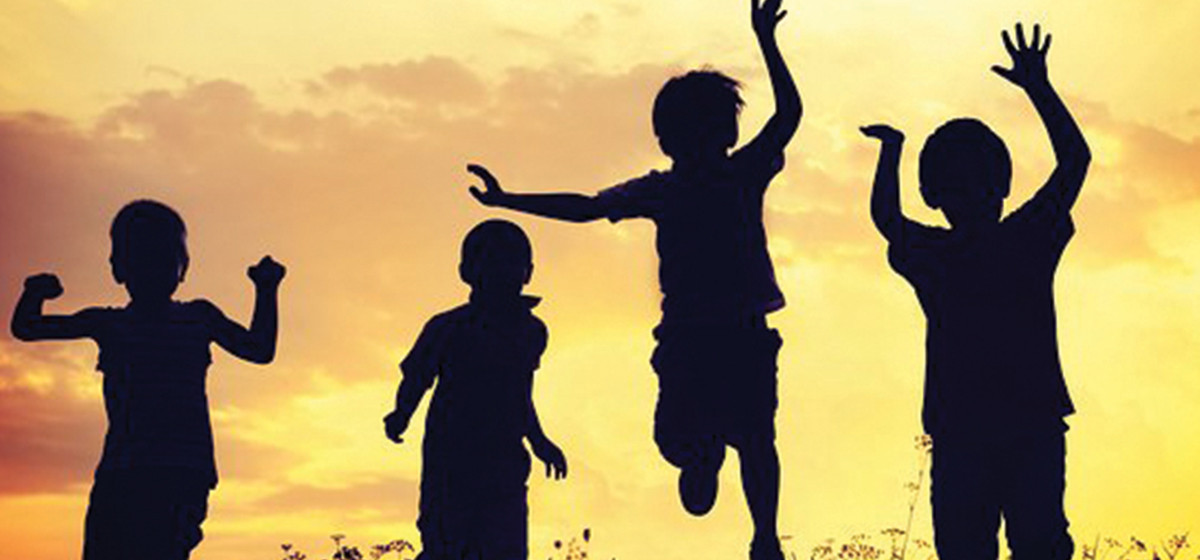
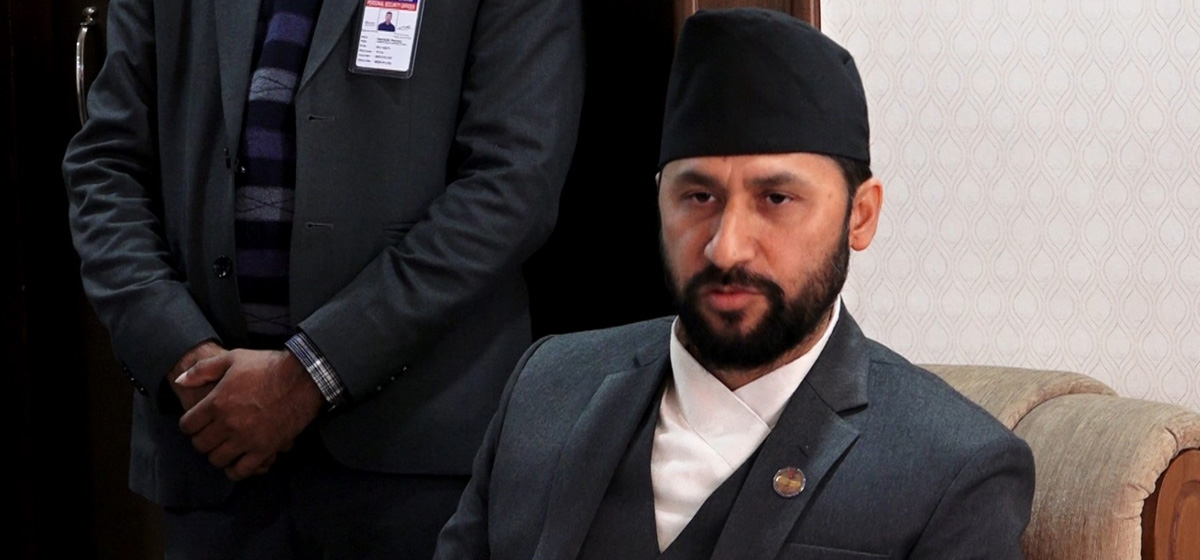
Leave A Comment